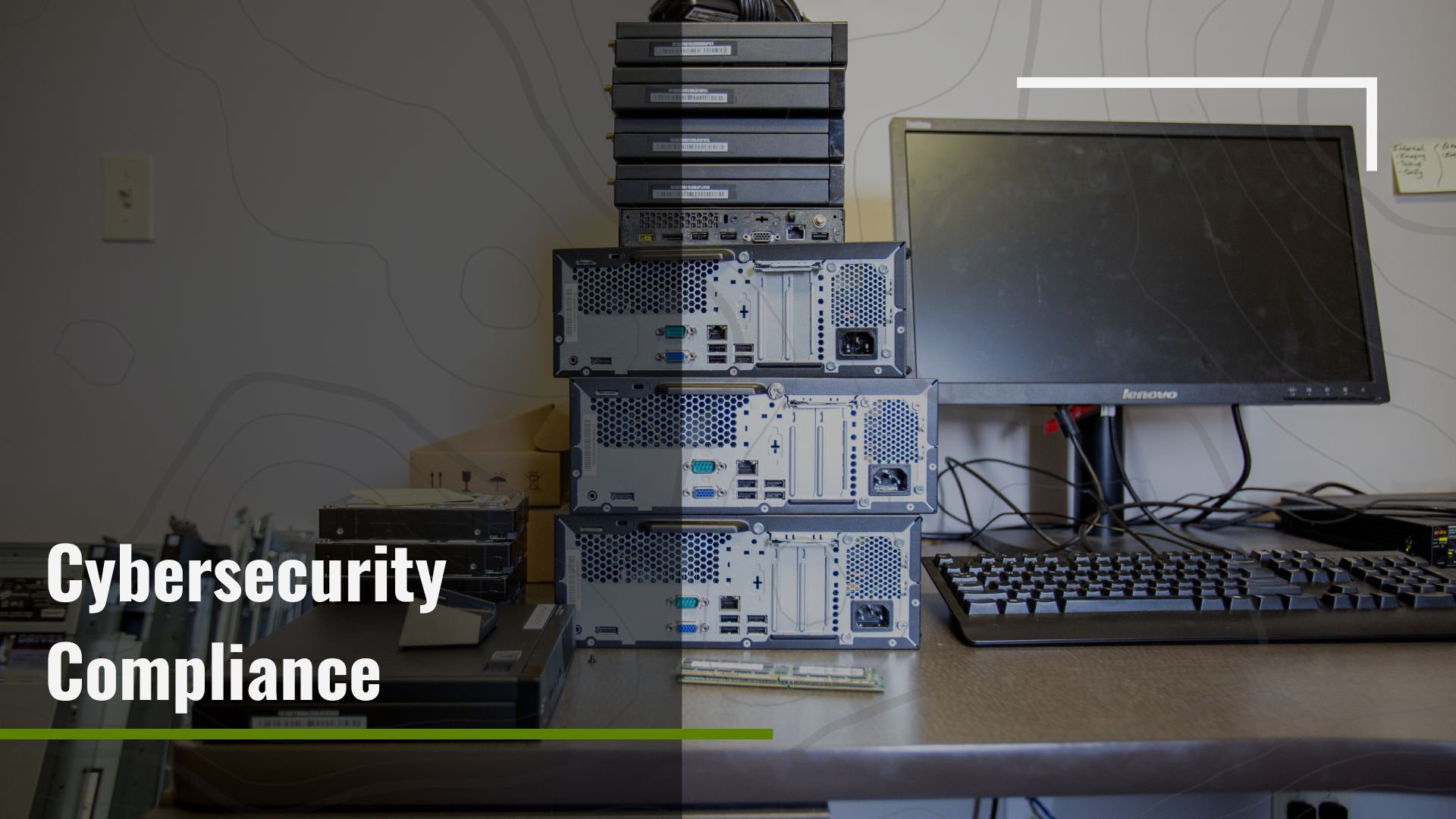What Is Cybersecurity Compliance?

Noncompliance results in disrupted business, lost revenue, decreased productivity, and potential financial penalties. What’s your company doing to uphold cybersecurity compliance?
The Basics of Cybersecurity Compliance
Cybersecurity compliance is necessary for your business’s success. There are specific cybersecurity compliance requirements that you have to meet, depending on your industry.
If you’re not sure what certifications you need, follow this guide that explains the purposes of each type of certification and the industries they relate to.
Certifications for Cybersecurity Compliance
Understanding the details of cybersecurity compliance certifications is the first step in meeting requirements. Here are standard cybersecurity certifications and how they work:
CMMC Certification
CMMC, or Cybersecurity Maturity Model Certification, is necessary for organizations that work with national security information or act as Department of Defense (DoD) contractors.
This model includes different cybersecurity compliance levels that depend on the specifics of the information your business has access to.
This certification verifies that a company provides comprehensive and scalable cybersecurity elements to keep sensitive data safe from unauthorized users. To meet the CMMC requirements, you must:
- Implement a secure platform for accessing and monitoring CUI (Controlled Unclassified Information) and DoD data.
- Develop a dependable SSP (system security plan).
- Receive a CMMC assessment and cybersecurity audit that describe where your security currently stands and where it needs to be to meet CMMC standards.
- Train your team members on personal device security.
Who Needs CMMC Certification?
If you work alongside the DoD or plan to in the future, you need a CMMC certification.
The DoD requires this certification because they handle sensitive data and only work with trusted organizations that meet their standards.
IRS 1075 Compliance Certification
The Internal Revenue Service (IRS) 1075 compliance certification is for U.S. government agencies that process any federal tax information (FTI), such as:
- Tax returns
- Taxpayer personal data (address, name, SSN)
- Any information derived from federal or state returns received from the IRS or via a secondary source
- Child support documents
- Disability paperwork
IRS 1075 assists government agencies and contractors that access this data to ensure they implement confidential and correct policies and practices. To receive this certification, you must:
- Minimize risk of losses and breaches
- Avoid misuse of FTI
- Actively protect FTI with cybersecurity measures
The IRS has created the Safeguards Program to review external agencies that access FTI periodically.
NIST Certification (800-171)
Businesses or products that meet the National Institute of Standards and Technology (NIST) requirements receive NIST certifications. All federal agencies must comply with NIST regulations and the NIST standards are the industry standards for most compliance regulations.
To meet NIST standards, you must:
- Submit an application to NIST and pay all associated fees.
- Perform an onsite assessment of cybersecurity.
- Resolve any nonconformities within your system.
- Complete a proficiency test and technical evaluation.
- Have your product tested against NIST SRM requirements.
CSF Certification
CSF, or Cybersecurity Framework, certification is necessary for all businesses seeking to secure Cybersecurity Insurance, and proves an organization’s commitment to protecting critical business data and networks.
To receive this certification, you must:
- Perform a two to eight-week assessment of your business operations. The length of the evaluation depends on the size and needs of your organization.
- Create and maintain a POA & M (Plan of Action and Milestones) that includes a roadmap to compliance.
A CSF certification scales according to your organization’s type, size, and regulations. It also allows businesses to customize their controls based on their needs and scales according to your organization’s type, size, and regulations.
IRS Publication 4557
IRS Publication 4557, certification is necessary for all major healthcare payers and proves an organization’s commitment to protecting taxpayer data. To receive this certification, you must:
- Perform a two to eight-week assessment of your business operations. The length of the evaluation depends on the size and needs of your organization.
- Identify and protect taxpayer data.
- Check e-File Applications and PTIN accounts weekly for total returns filed using EFINs and PTINs; deactivate unused EFINs.
- Comply with most requirements listed under the CSF (Cybersecurity Framework).
NISTIR.7621 Certification
NISTIR7621, or National Institute of Standards and Technology Interagency Report 7621, is a framework NIST developed as an interagency report and reference guideline about cybersecurity for small businesses.
This document is intended to present the fundamentals of a small business information security program in non-technical language. To receive NISTIR.7621 certification, a company must:
- Perform a two to eight-week assessment of your business operations. The length of the evaluation depends on the size and needs of your organization.
- This NIST Interagency Report (NISTIR) provides guidance on how small businesses can provide basic security for their information, systems, and networks.
- Understand and document Cybersecurity, Privacy, Physical Security, Contingency Planning and Disaster Recovery, Operation Security and Personnel Security measure and how they are enforced.
A NIST.IR.762 certification scales according to your organization’s type, size, and regulations. It also provides businesses that handle and manage taxpayer data and is required by the IRS for anyone that prepares Federal Tax returns.
HIPAA IT Certification
The Health Insurance and Accountability Act, HIPAA requires all healthcare organizations to implement security measures that increase patient privacy. To receive your HIPAA IT certification:
- Develop thorough privacy and security policies.
- Assign HIPAA privacy and security officers.
- Implement robust cybersecurity measures.
- Complete regular risk assessments and self-audits.
- Maintain business associate agreements.
- Establish a breach notification procedure.
- Document all security measures, policies, and breaches.
Once you’ve completed these steps, your healthcare organization meets the standards of the privacy, security, and breach notification rules of HIPAA, and you can receive their certification.
How Do I Know if My Organization Meets Certification Requirements?
A qualified managed service and cybersecurity provider can ensure you’re meeting the proper requirements of your desired certification. The experts at G6 – Military Grade IT perform:
- Regular risk assessments
- Vulnerability monitoring
- Periodic audits
- Creation and maintenance of POA&Ms
- Attendance during audits to ensure the regulators or auditors can get answers to there questions on the spot.
With these services, we keep your organization compliant with certification requirements. We’re experts in CMMC, HIPAA, CSF, NIST, IRS 4557, NISTIR.7621 and IRS 1075 compliance and help businesses struggling with:
- Access to monitoring and detecting services
- Handling cybersecurity regulation fulfillment
- Paying fines associated with noncompliance
Contact us today to find the right cybersecurity compliance solution for your organization.

